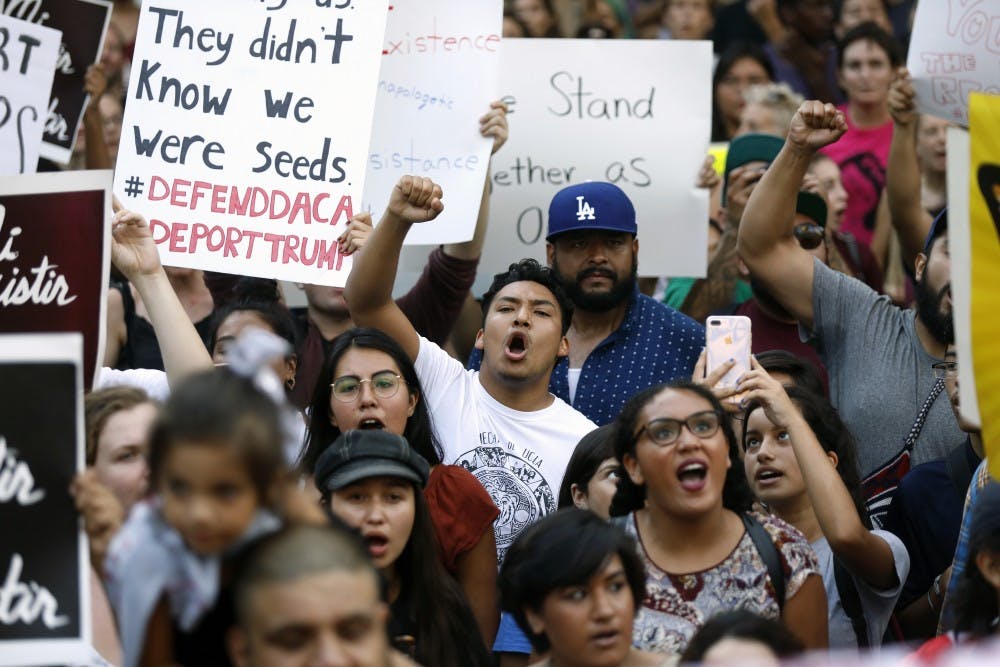President Trump's signing DACA's death warrant has exited the front pages after only about a week — not unusual in this administration, where the latest news item is always swept off the table almost immediately by the next scandal. After the initial frenzy of coverage, DREAMers have been relegated mostly to inspiring, often tear-jerking pieces.
If you've been paying attention to the news, you probably saw a headline about Alonso Guillen, 35, who died saving victims of Hurricane Harvey. Many of the first responders working rescue duty alongside him were also DREAMers. Karen Caudillo, a 21-year-old business owner, gave a a tearful interview about all of the opportunities DACA has given people like her. We are hearing about college students like Azalia Martinez and Harvard graduates like Fernando Espino Casas. About heroes like Jesus Contreras, another Harvey rescuer.
These people do not deserve to be shipped off to the countries they were born in. America agrees — 48 percent to 29 percent, we want to keep DACA. For once, congressional Republicans like Paul Ryan and John McCain agree with liberals like Bernie Sanders and Nancy Pelosi: DREAMers shouldn't have to face deportation.
In a functional Congress, the six-month grace period Trump has given before protections disappear and the agreement on both sides would be more than enough to give our legislature a chance to turn DACA into real law instead of the act of compassionate executive overreach it probably was — and even our nonfunctional Congress may yet get it together and pass the DREAM Act with bipartisan support. We should be fighting for that legislation, and for the path to citizenship supported in the BRIDGE Act, co-sponsored (like the DREAM Act) by South Carolina's very own Sen. Lindsey Graham.
But I'm not going to make the case for saving DREAMers — it's the only decent thing to do. Many other writers have made that point already. Instead, I have a bone to pick with whether media coverage of the idea is "decent."
Sure, it makes for a better story to cover heroes and small business owners and Harvard graduates. The public at large is more sympathetic to DACA recipients if we prove that they're smart and industrious and willing to die to save American lives. But we shouldn't be encouraging our tendency to make our support conditional on extraordinariness. Most DREAMers aren't going to cure cancer or save babies from burning buildings or get your kitten down from a tree. They're just going to live their lives here, if we let them.
And that's okay. They're not worth saving because they're better than regular people; they're worth saving because they're regular people who came here as children, sometimes as babies, and have never really known life anywhere else.
When we write articles intended to be heart-wrenching because we're deporting heroes, we forget that DREAMers are worth something outside of what they can do for us.

